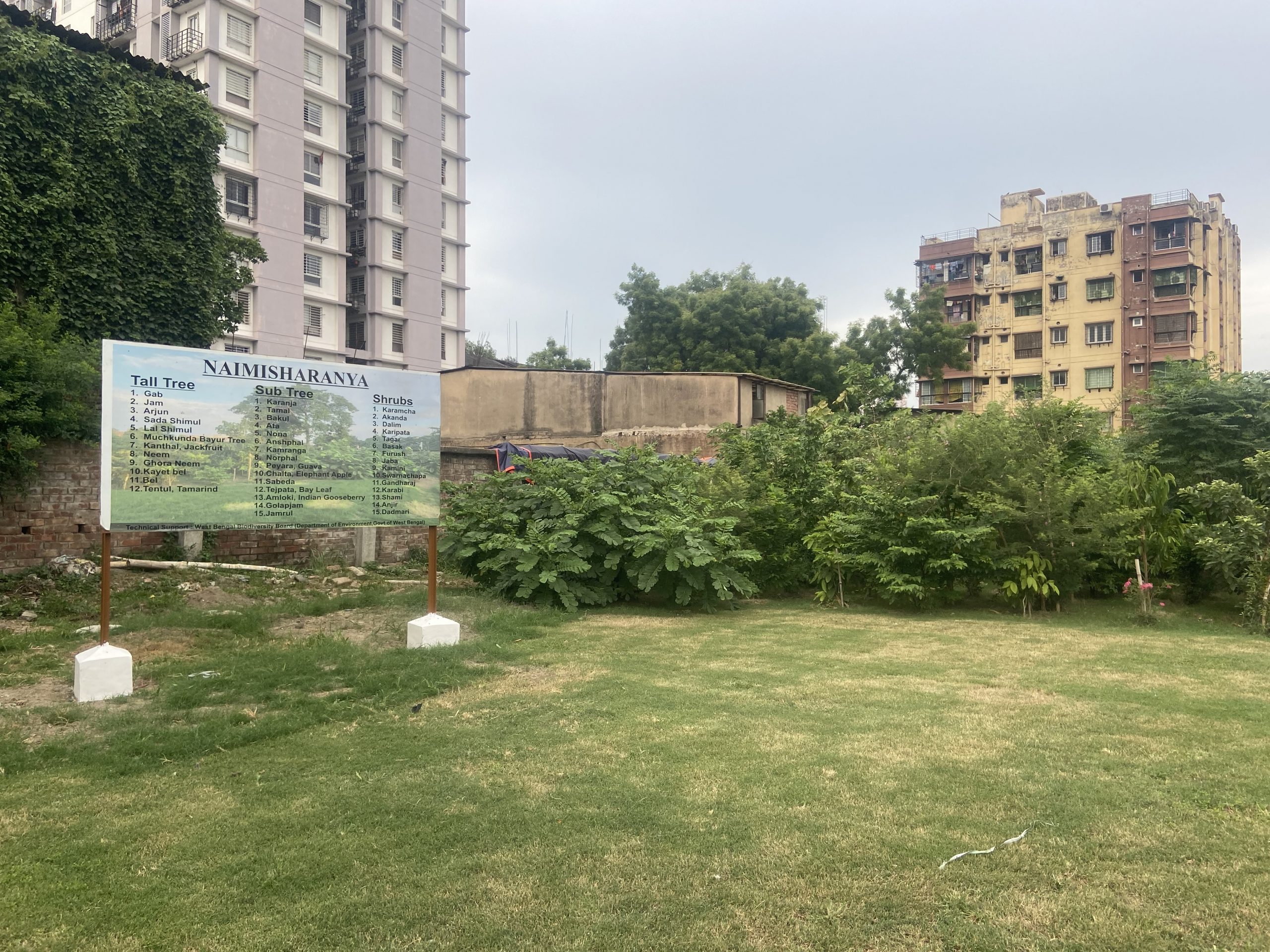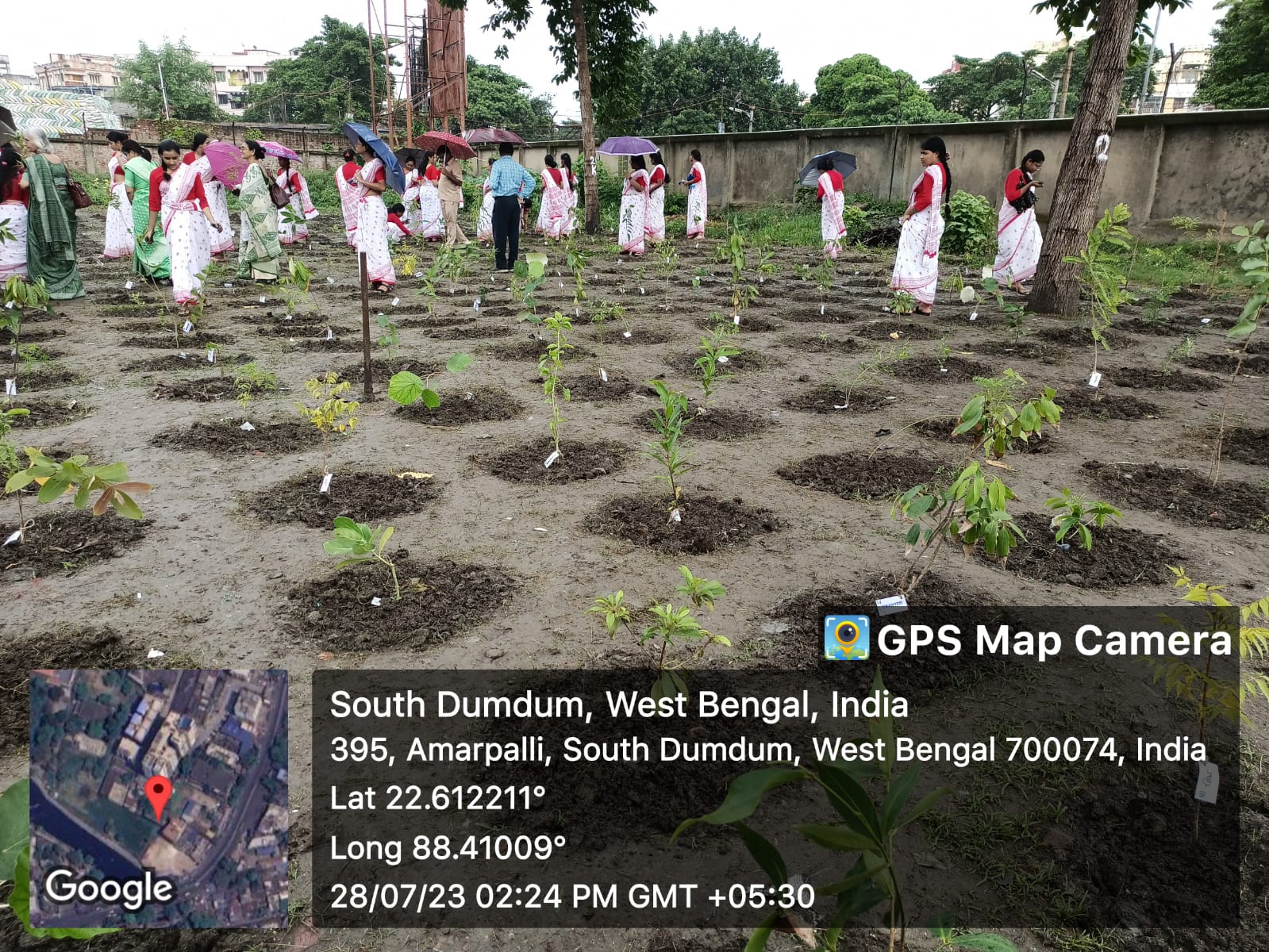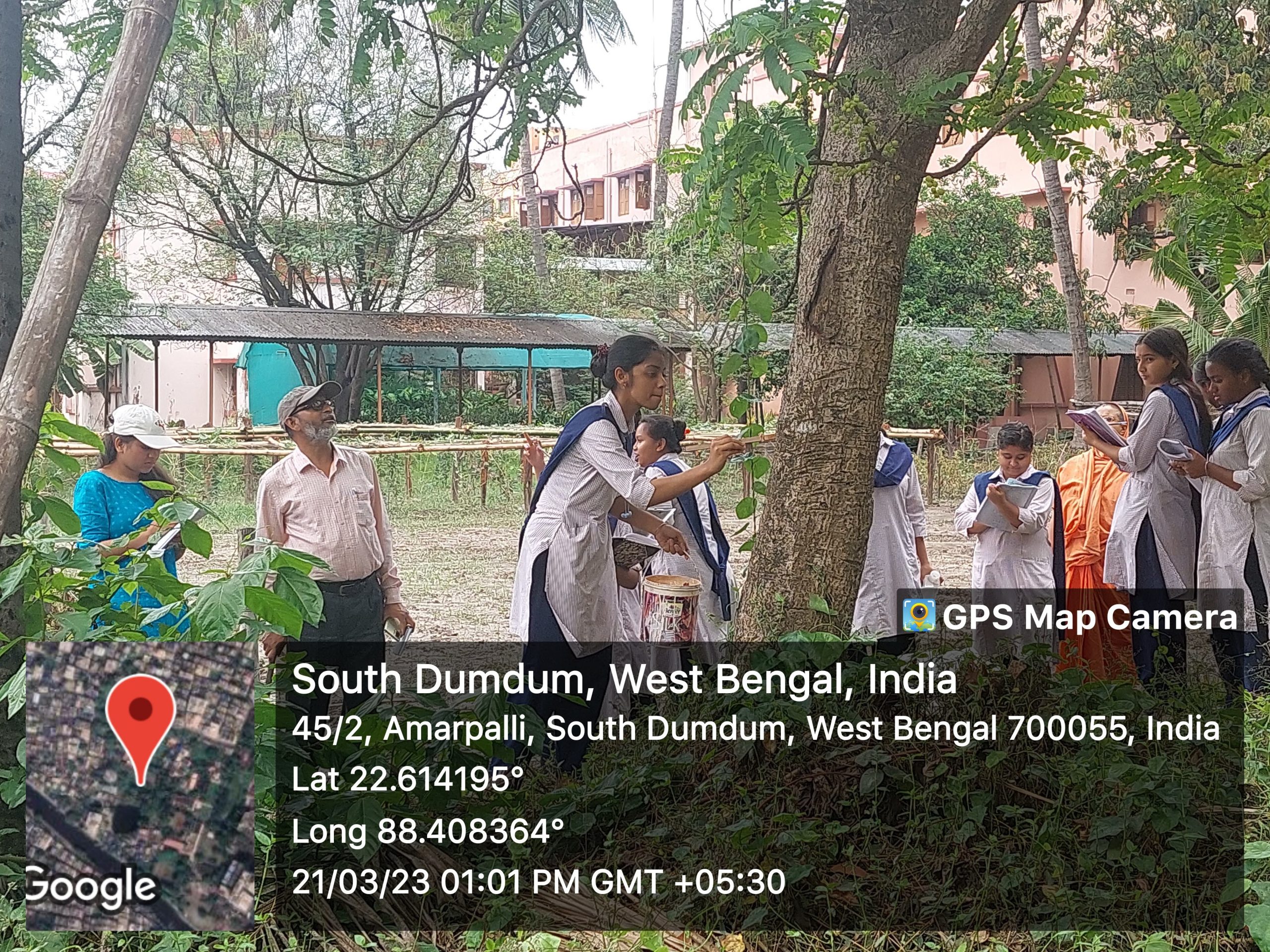
An Environment Cell has been active in the college since 2019. The Cell, along with the IQAC, plans, initiates and sustains new and existing eco-friendly measures in the college. It also plans events and practices that help towards students’ informed awareness and their involvement in environmental activism.
The members of the Environment Cell (2022-24) are:
Conveners:
Pravrajika Ishtatmaprana, Monastic Faculty, Dept. of Phiolosophy
Dr. Amrita Pramanick, Assistant Prof. Dept of Geography
Members:
Dr. Soma Mukhopadhyay, SACT, Dept of Geography
Smt. Nivedita Deb, SACT, Dept of Geography
Smt. Kanika Das, SACT, Dept of Geography
College Initiatives:
The College has a number of intrinsic everyday practices and measures that ensure preservation and enhancement of the green and eco-friendly campus. Some of the Green Initiatives taken include:
Energy conservation
Rooms are spacious and well ventilated so that enough daylight and air make the rooms bright and cool. Students are made acutely aware about the proper use of electrical lights and fans and are trained to switch these off when rooms are unoccupied. Low energy bulbs are used. Plans are on to completely switch over to LED bulbs in near future as part of the College’s energy conservation efforts. In the air-conditioned rooms, the doors and windows have tight seals to prevent wastage. The doors of the air conditioned rooms are attached with elbow hinges to minimize leakage. Printers, copiers, laptops and desktop computers are turned off or put into sleep mode when not in use.
Hostel students are encouraged to study collectively in the hall till 10 p.m. under the guidance of a monastic member so that lights and fans in hostel rooms are not required during these hours. Equipments are checked regularly for proper operation and maintenance.
Use of Renewable Energy
The College has a strong focus on alternative energies awareness, especially on the role and importance of solar energy as the greatest renewable and sustainable form of energy available to cope with the escalating demands of modern life. As the first step towards harnessing larger benefits of solar energy, the College has initiated solar heating facility in the hostel. At the cost of Rs 3,50,000 (Three lakh fifty thousand) the College has installed two (1500LPD+ 500LPD) evacuated tube Solar Water Heating System to fulfill the demand of hot water among the hostel boarders during winter season. Moreover, a plan to install 3KWP Grid Tied Solar Roof Top Power Plant in the main College building is also being considered.
Organic Farming Practices
The College makes a conscious effort towards using non-chemical and ecofriendly pesticides and insecticides as far as viable. An important and unique institutional feature is the use of natural fertilizers. There are carefully set up and well-maintained compost-pits that supply organic fertilizers and also recycle organic refuse.
Efforts for Carbon Neutrality
The vast green campus is itself a low carbon area, which preserves a rich biodiversity. Regular plantation of trees & maintenance of adequate greenery in the College campus is a prime focus. All cars and vehicles belonging to the College pertain to anti-pollution standards. Recently the College has acquired a battery-operated E-Rickshaw as an eco-friendly vehicle for internal use within the campus.
Waste Management and Segregation
A) Segregation at Source
The College is virtually a plastic free zone and students are advised to restrict the use of plastic bags within campus. Sustained campaigns are carried out to make students aware of the harmful effects of plastics in order to reduce its use and to initiate a practice of recycling.
Throughout the College, wastes are separated into biodegradable and nonbiodegradable bins. Hazardous metallic and glass wastes like discarded tubelights, bottles, glass and other metallic wastes are kept separately and handed over to the itinerant waste-collectors or kabadiwala from time to time.
B) E-waste Management
The College has an annual contract with Maple Technologies for regular maintenance of all computers in College, Office and Library and to reduce ewaste. Computers are upgraded regularly. E-wastes are preserved separately to avoid environmental hazards and the college occasionally goes for exchange offer with Maple Technologies for outdated machines.
Other Green Practices
The College periodically organizes different events and awareness programmes in order to make the students and staff aware of the importance of preservation of the natural environment.
Vriksharopan
Vriksharopan or a ceremonial planting of saplings is held in the College campus every year to create a carbon neutral atmosphere, as well as to instill a sense of environmental consciousness among the students.
Naimisharanya – The Urban Forest
Built in collaboration with the West Bengal Biodiversity Board, the college campus today boasts of a unique urban forest. It consists of more than 989 saplings of 42 different species of flora. Close plantation of three types of trees – tall-tree (11 species), sub tree (16 species) and small tree or Shrub (15 species) ensure three different tiers of the forest. This marks a significant step towards carbon neutrality, air purification, as well as lessons in nature conservation and education. This effort ultimately aims at a profound ecological imprint in this congested urban area, monitor the air quality of the surrounding area, as well as increase the bio-capacity for the sustainability of the environment for future generations.


Campus Flora-Fauna Mapping:
The Project was undertaken by a student-teacher research team with assistance from WBBB. On initial inspection on 09.03.2023, more than 65 different flora species were identified. The research includes the following areas:
Identifying, marking, documenting vernacular names, scientific names and families of the
species.
The height, canopy area and diameter of the trees measured and documented.
The location of each tree determined by their latitude and longitude with the help of GPS Map Camera.
Name-plates prepared in Bengali, including scientific names and medicinal uses.

Jeevaka Kanan: The Medicinal Herbarium
Herbs like Tulsi, Bhringraj, Turmeric, Calendula, Indian Aloe Vera are grown in the medicinal herbarium of the campus – a special patch allotted solely for medicinal plants and herbs. Recently, this patch has been put under the supervision and care of the NSS wing of the college, aiming for greater student involvement in growing and maintaining medicinal plants.
Sensitization Programmes carried out in the past years: